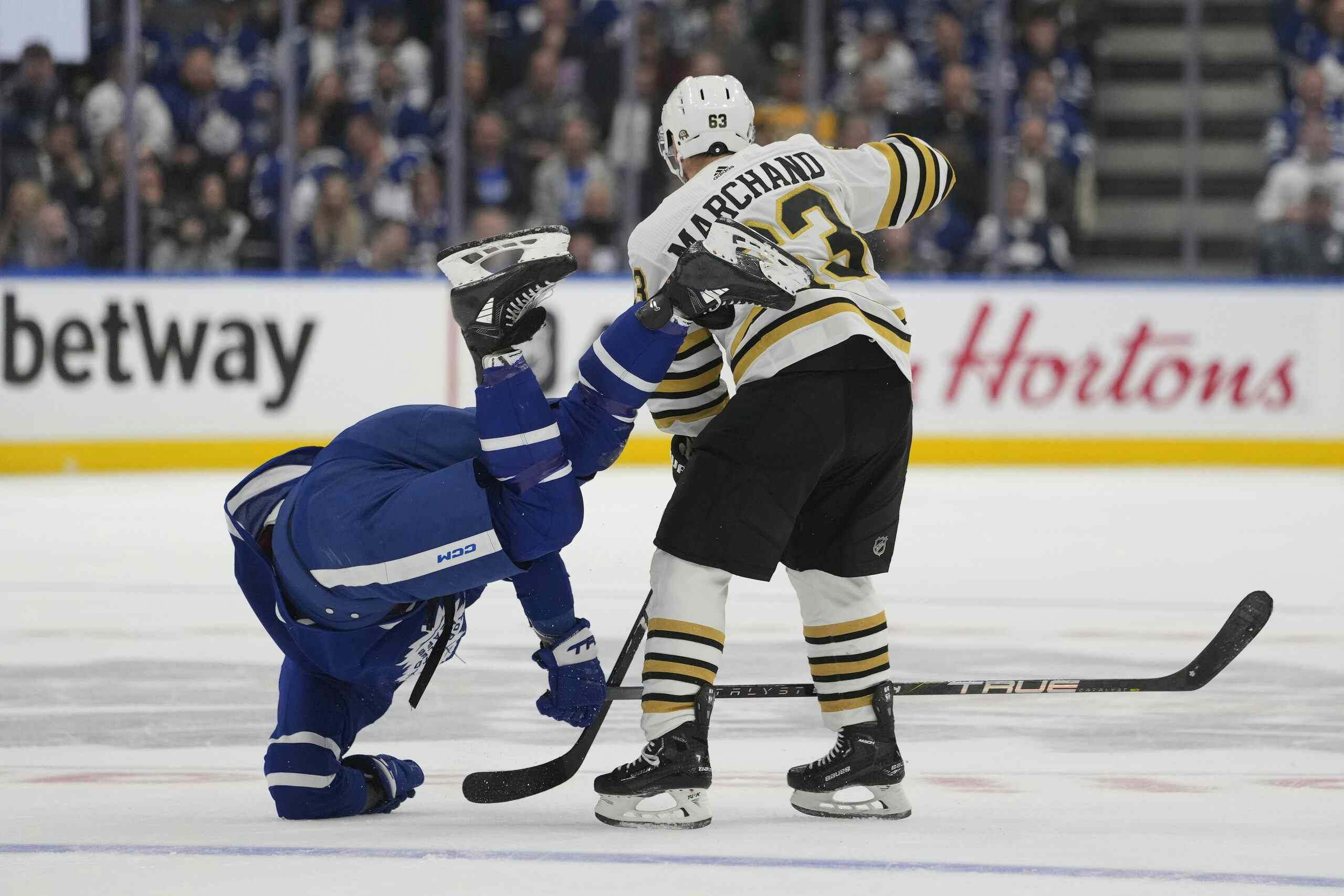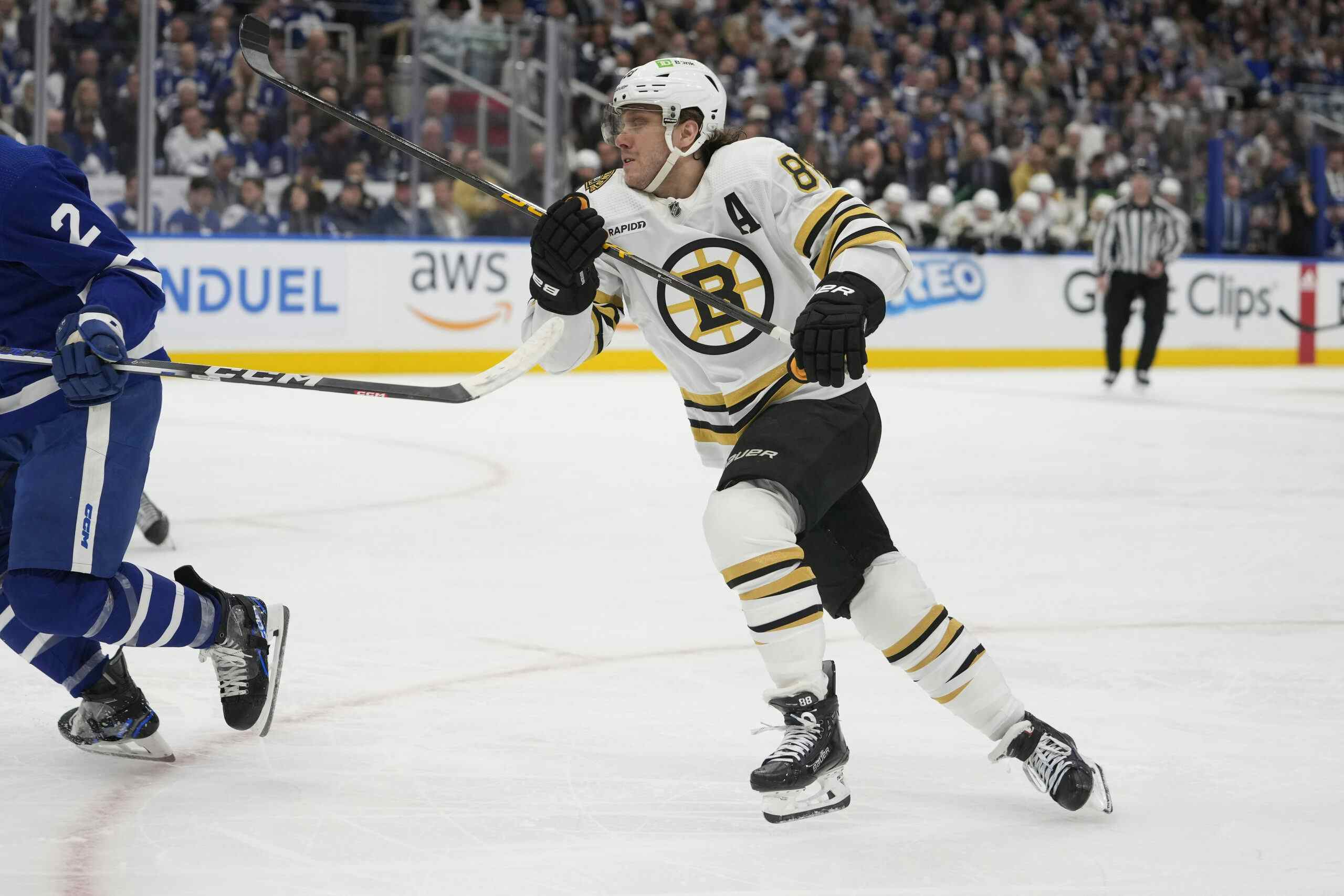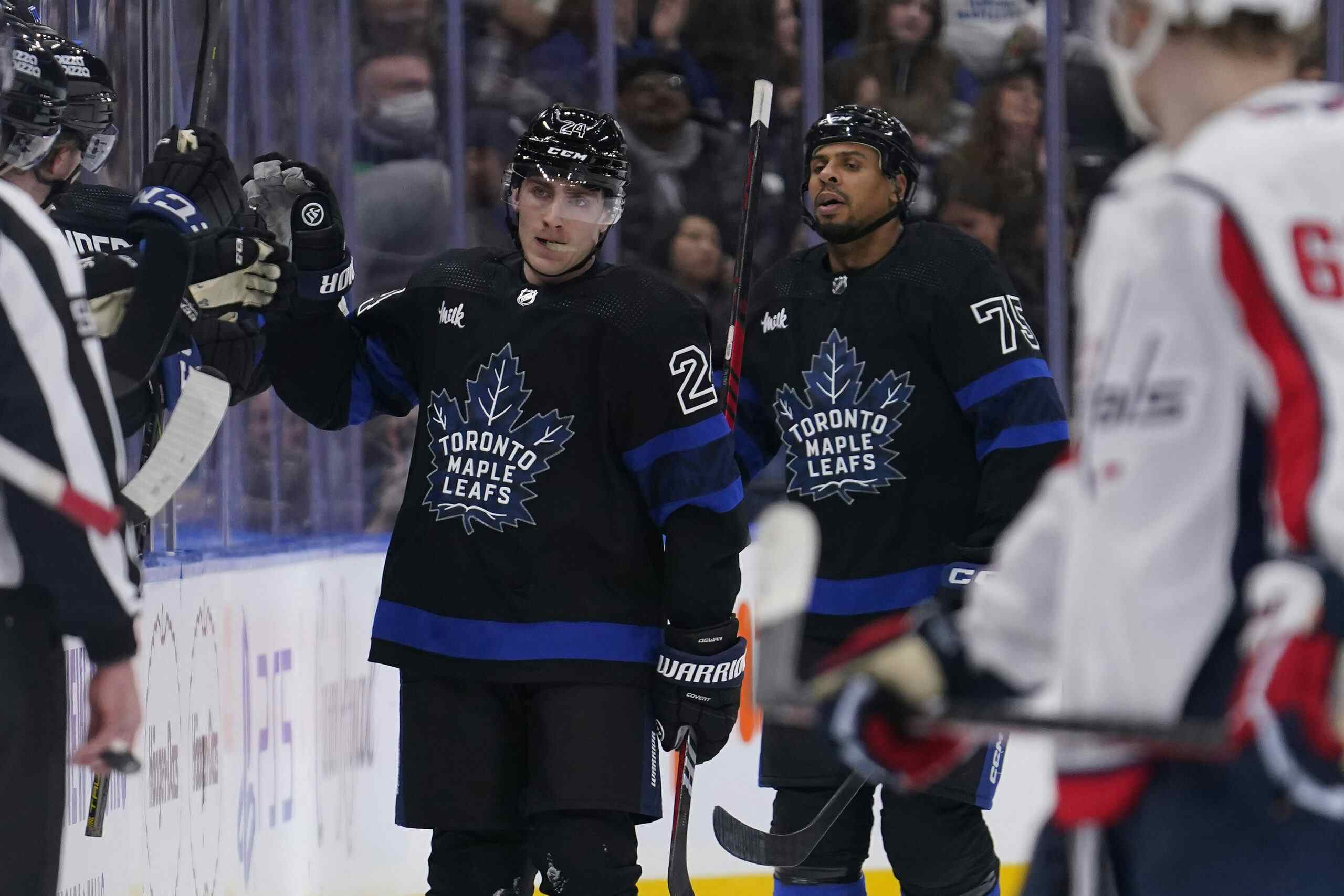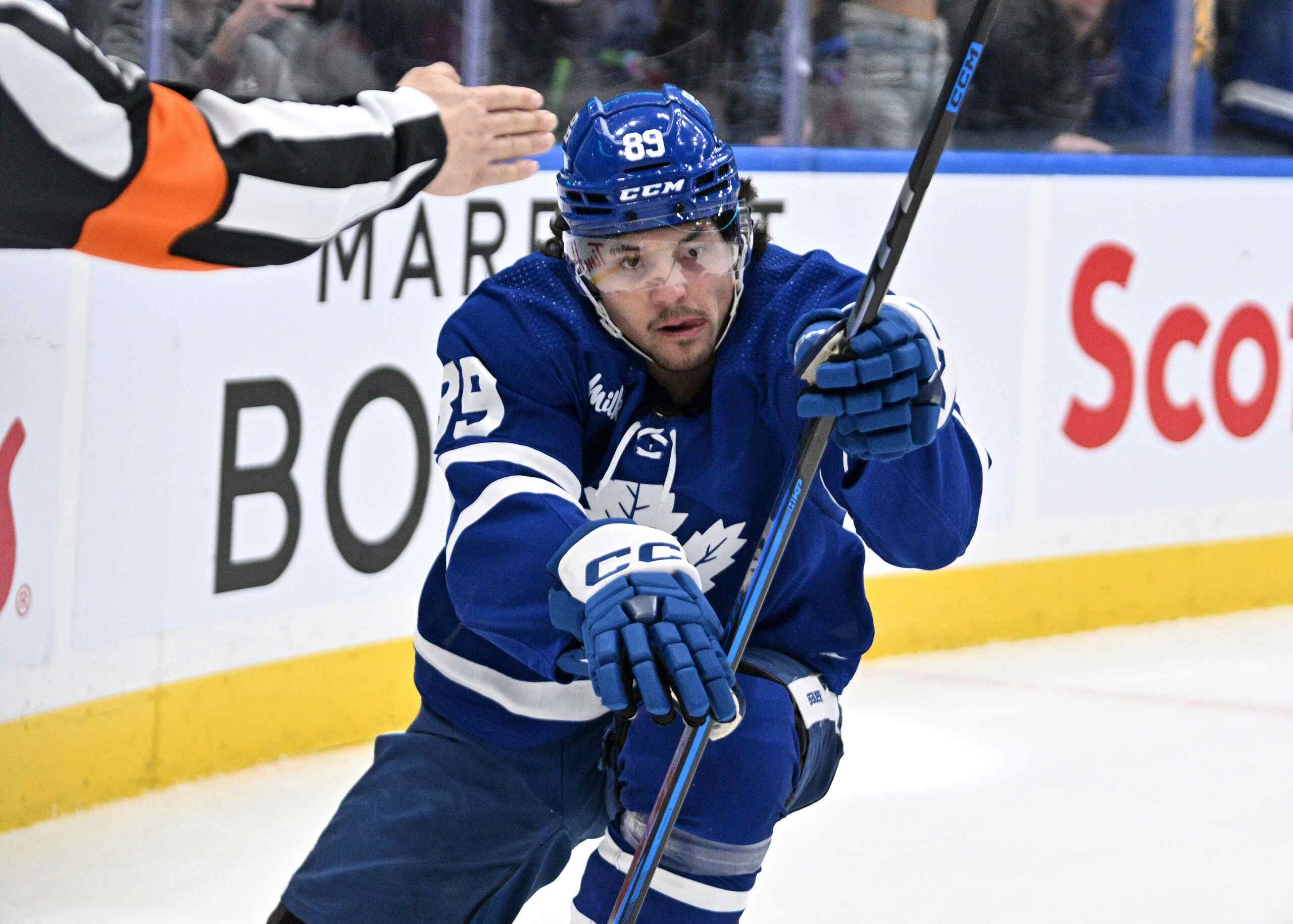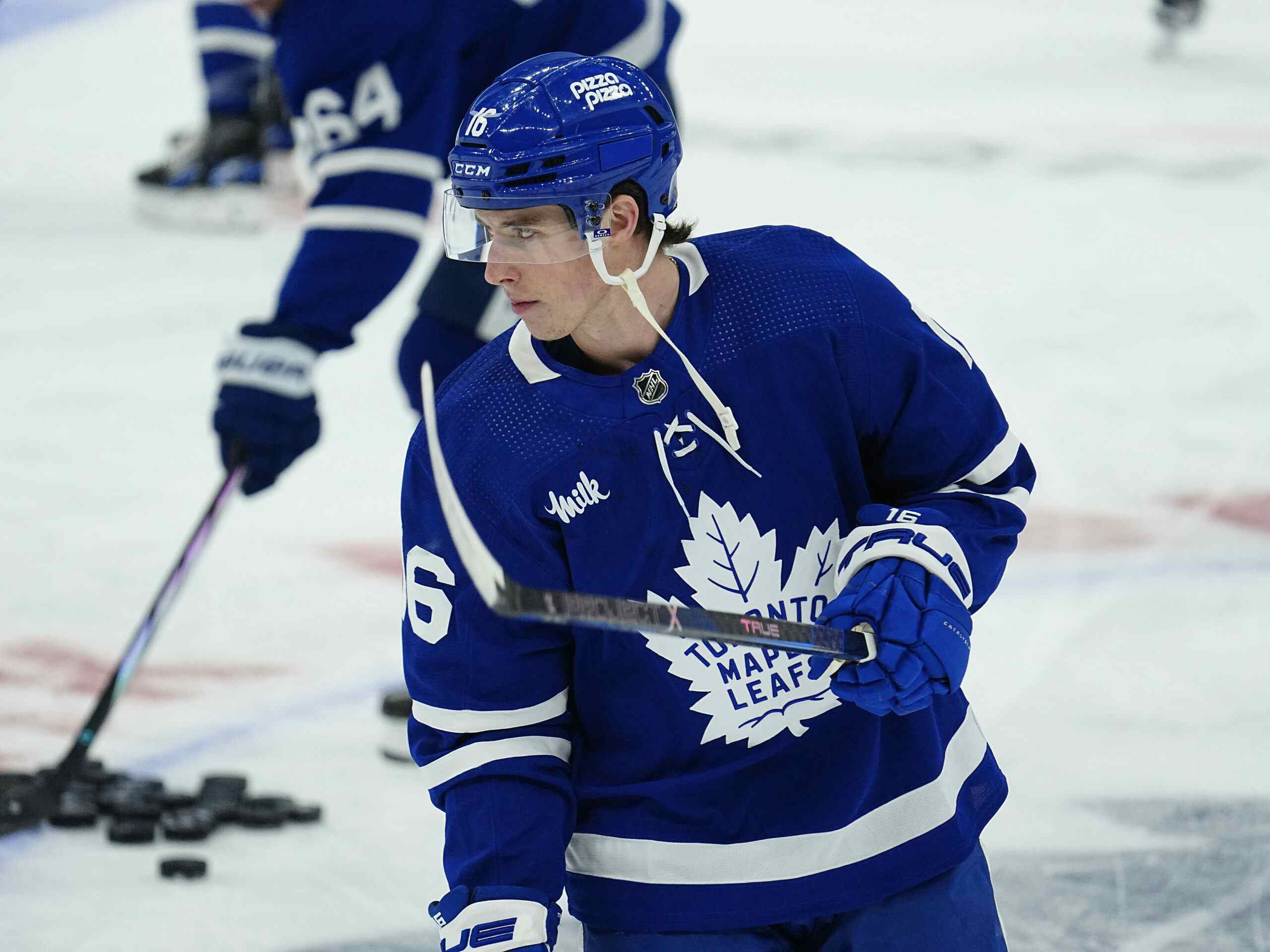Kessel Among Many Ex-Leafs Hunting For A Cup Ring (Part 1)
By Greg Brady
7 years agoLots of fascinating and compelling debate about Phil Kessel among Maple Leafs supporters, given he’s on a team only eight (maybe seven, or six, by the time you’re plowing through this) wins away from a Stanley Cup ring. His former team, the Boston Bruins, won the Cup a mere 21 months after trading Kessel to Brian Burke’s Leafs to begin the 2009-10 season. Despite the progress and excitement of younger players and a fortuitous lottery ball bounce a few weekends ago, the Leafs aren’t within range of that most elusive of goals that they’ve been chasing as a franchise for a half-century.
But what about all the other stars who left Toronto, be it of their volition, or against their will and had Cup-winning opportunities that ended in either triumph or just more disappointment? I thought it’d be fascinating for me, and for you, the reader, to run down the list. I didn’t include every single Leaf selected to the All-Star Game (sorry Bob Manno & Robert Picard), but pretty close, beginning with the iconic Leafs leader for anyone my age (44), or a few years younger or older.
Part 1 includes what we’d consider Leaf favourites of the late 1970s through the 1980s. Next week, we’ll do a deeper dive into some of the more recent efforts (some successful, some less so) of Maple Leafs from those good late 1990s and early 2000s teams).
DARRYL SITTLER
- 32 years old — traded to Philadelphia, January 1982
- Seasons played after Leafs departure: 4
- Stanley Cup Wins: 0
- Playoff Rounds Won: 0
Sittler had no luck, really, in pursuing a Stanley Cup after the acrimonious trade which sent him to the Flyers halfway through the first of many lost seasons in the 1980s for the Maple Leafs. He came to an aging Philly team that had been in the Stanley Cup Final just two springs previous, but ended up being hammered out while Sittler was there in three straight first-round series, going a combined 1-9 in those games! 1983 was particularly frustrating for Sittler, who posted an 83-point season, helping the Flyers to the 2nd-best overall record in a 21-team league, with 106 points, only to be knocked out by the Rangers three straight games. Sittler became a Red Wing just as the 84/85 seasons was starting, but was banged up quite a bit, playing only 61 games, and just 2 of the three playoff games for a 66-point Red Wings squad.
BORJE SALMING
- 38 years old — signed as free agent in Detroit, July 1989
- Seasons played after Leafs departure: 1
- Stanley Cup wins: 0
- Playoff Rounds won: 0
I’ve mentioned this before on radio, and in print — no one quite knows Salming’s motivation in choosing Detroit. The Wings had knocked Salming’s Leafs out of the playoffs in 1987 and 1988 on their way to back-to-back Western Conference Finals (Edmonton was waiting, naturally), but there were discipline, chemistry, and goaltending issues all facing the Wings heading into the Salming season. Players like Fedorov, Lidstrom, and Konstantinov hadn’t arrived in Detroit yet, and disastrous trades going into that season involving Adam Oates and Paul MacLean, and another that decimated the core as Salming’s Wings season was just beginning, sent Adam Graves, Petr Klima, and Joe Murphy to Edmonton for Michigan-born Jimmy Carson. Carson wasn’t terrible, but both deals made the Wings worse on the ice, and morale off it suffered as well. Salming was a bizarre plus-20 (I know, not a great stat, but still shocking numbers) playing an average of 14 minutes/night for a terrible hockey team, that missed the playoffs in the NHL’s worst division. Salming left North America to play three seasons in Sweden before quitting the sport at age 42. Just like Sittler got to the Flyers a bit too late to chase a Cup, Salming got to the Red Wings a bit too early.
LANNY McDONALD
- 26 years old – traded to Colorado, December 1979
- Seasons Played After Leafs Departure: 8 1/2 with Colorado and Calgary
- Stanley Cups Won: 1
- Playoff Rounds Won: 8
Of course, Lanny is probably the most famous and accomplished ex-Leaf to win a Cup (though Larry Murphy won two and is of course also in the Hockey Hall of Fame), and for years, despite being on an excellent, in-their-prime team, it looked many times like it wasn’t meant to be. After toiling in Denver on non-playoff teams for parts of three seasons, Calgary GM Cliff Fletcher acquired McDonald in November 1981. Another key acquisition was Mel Bridgeman from Philadelphia, and the Flames made the Smythe Division playoffs, only to be trounced by that miraculous 1982 Vancouver Canucks team with the Terrible Towels in the stands serving as inspiration.
In a highly competitive division, the Flames lost in the second round in 1984 to Edmonton in 7 games, and slipped badly in 1985 against Winnipeg, losing three games to 1. By 1986 though, they had incredible talent and depth they didn’t have when McDonald first arrived. 22-year old Mike Vernon in net, 22-year old Al MacInnis, and 21-year old Gary Suter on defence, and up front, McDonald got to play with the likes of Dan Quinn, Joe Mullen, Hakan Loob, Jim Peplinski, and Carey Wilson. After a first-round sweep of the Jets, the Oilers waited once again, and in Game 7 — well, Steve Smith happened, and the Flames toppled the two-time defending Cup champions. They got pushed more so than anyone expected in the West Finals by the St. Louis Blues but survived a 2-1 Game 7 outcome at home at the Saddledome.
McDonald and the Flames met a very young and rebuilt Montreal Canadiens team in the Stanley Cup Final. Calgary won Game 1 5-2 at home, but two nights later, one of the most shocking OT winners in Stanley Cup history occurred when Habs forward Brian Skrudland scored the winner 9 seconds into overtime. It’s still the fastest OT winner ever in a Stanley Cup playoff game. Of course, if Calgary can take a 2-0 lead into Montreal, it possibly changes everything, but the Canadiens with incredible goaltending from rookie Patrick Roy, ten playoff goals from Claude Lemieux, and 19 points from diminutive Mats Naslund wouldn’t lose again. They’d inflict a 4-3 final on Calgary in Game 5, in front of the Flames’ home fans, after the Flames rallied from 4-1 down and nearly tied it in the last minute. McDonald’s 18 points in 22 playoff games weren’t enough.
Three springs later, though, McDonald was playing a lesser role on a deeper Flames team, adding vets on the blueline like Brad McCrimmon and Jamie Macoun, and stars up front in Doug Gilmour, and the home-drafted Joe Nieuwendyk and Gary Roberts. The Flames barely survived a tense 7-game series in the opening round with Vancouver, but in the first playoffs after the Gretzky-to-Kings trade, it was the Kings, not the Oilers they’d face in the second round. LA was spent from their 7-game first round win, but the Flames weren’t, and Calgary rolled to a 4-game sweep, outscoring the Kings 22-11 in the four games. They’d barrel through a much weaker Chicago team four games to 1, and would meet old adversary Montreal in a Stanley Cup Final rematch.
McDonald had been a healthy scratch in five of the seven games against the Canucks, and despite dressing for all games against the Kings and Hawks, he had no goals and three assists in eleven games by the time the Final started. McDonald played in Games 1 and 2 in Calgary, which were split between the two teams, but sat out Games 3, 4, and 5, watching from the stands. Calgary would win Game 5 3-2 thanks to an early 3-1 lead and a brilliant 19-save third period from Mike Vernon, and McDonald found his way back into the lineup in Game 6.
McDonald took a hooking penalty in the 2nd period but found himself on a rush almost immediately after leaving the penalty box, and the Flames captain roofed a wrister over Patrick Roy’s shoulder giving Calgary a 2-1 lead. Doug Gilmour’s two 3rd-period goals would preserve a 4-2 victory, and it’s still the first and only time any NHL team has ever won the Stanley Cup on Montreal’s home ice — that’s incredible when you think about it.
McDonald accepted the Stanley Cup as Flames captain and after 1111 regular season games, and 117 playoff games, he retired at age 36 despite an offer for a 1-year deal to play in 1989-90 for a team he wouldn’t name then, and still hasn’t. Again, he’s probably the ex-Leaf that almost all Leaf fans were united in rooting for to get his name on Lord Stanley’s Cup, and he did it in more dramatic fashion than anyone could have imagined.
RICK VAIVE
- 28 years old, traded to Chicago, September 1987
- Seasons Played After Leafs Departure: 5, with Chicago and Buffalo
- Stanley Cups won: 0
- Playoff Rounds won: 0
Wow, this could have ended so much better for Vaive. There certainly was promise in arriving in Chicago, with Steve Larmer, Denis Savard, and Troy Murray all in their prime. Vaive posted a 43-goal season to start his Blackhawks career, but the team was weak on the backend, and they were quickly banished in their first playoff round, 4-1 to St. Louis. Vaive was traded in a 1-for-1 for power forward Adam Creighton from the Sabres. Despite coming to a team also with considerable offensive talents like Pierre Turgeon, Phil Housley, and Dave Andreychuk, the Sabres couldn’t get through the first round in any of the three seasons Vaive was there, losing to Boston once, and Montreal twice. Vaive played 22 playoff games after leaving the Leafs and was only on the winning side for six of those games.
WENDEL CLARK
- 27 years old, traded to Quebec, June 1994, 31 years old, signed as UFA with Tampa Bay
- Seasons After Leafs Departure: 1 1/2 (Quebec/NY Islanders), 2 (Tampa Bay/Detroit/Chicago)
- Stanley Cups Won: 0
- Playoff Rounds Won: 1
Hmm, where to begin. Though Lanny McDonald’s Stanley Cup triumph in 1989 was joyous for Maple Leafs fans, watching Wendel Clark play for another team (especially a rival like Detroit or Chicago) in a Stanley Cup Final game may have tested the considerable devotion levels that Maple Leafs fans have for their beloved. The Fall 1994 lockout delayed Clark’s debut with the Nordiques, but when he did play, he was effective, despite missing 11 of the 48 games with injuries, and Quebec ended up as the top seed in the Eastern Conference. They’d ignominiously be dumped, though, in a one vs. eight battle, losing to the defending Cup champs, the New York Rangers, who weren’t your typical 8-seed, but struggled to find consistency in their shortened season.
Clark was traded to the New York Islanders straight up for Claude Lemieux in a three-way deal that also involved Steve Thomas. Lemieux ended up with the Avalanche in their debut Cup-winning season after moving from Quebec; Thomas became a Devil, and Clark an Islander. Clark’s Islanders would finish with the 3rd-worst record in the 26-team NHL, and later the following season, he’d be a Maple Leaf again.
After the Maple Leafs’ 1996 1st-round exit at the hands of the St. Louis Blues, Clark would have to wait until 1999 to experience playoff hockey again, but what an opportunity it was. On Trade Deadline Day, the Red Wings looking to win a third straight Stanley Cup Final, acquired Chris Chelios, Ulf Samuelsson, Bill Ranford (for goaltending depth behind Chris Osgood), and Wendel Clark (Clark coming from a Tampa Bay team that would ultimately finish last overall). I was an anchor/reporter at WDFN Detroit and covered the Wings extensively, and was in the Red Wings dressing room when it was announced Clark was acquired — cheers went up through the room!
The 32-year-old Clark quickly became a crowd favourite, including scoring an OT winner late in the regular season. The Red Wings would win their first six playoff games, sweeping Anaheim, and winning the first two games of the second-round series against hated rival, Colorado. But the tides turned against Detroit with injuries to starting goalie Chris Osgood (Bill Ranford played well in the first two Avalanche games, less so after that), Igor Larionov, and Brent Gilchrist. The Wings were trounced 5-3 and 6-2 on home ice, lost Game 5 3-0 in Denver, and were embarrassed 5-2 in a home ice Game 6 that eliminated them and effectively ended Clark’s Stanley Cup dreams. Clark was healthy for all ten playoff games, and scored two goals and added three assists, in mostly a third-line role, with little or no power-play time.
He signed with Chicago that summer, and the Leafs re-acquired him for their 2000 playoff run, but it ended in the second round against New Jersey in six games. Clark only dressed for six of the twelve Leafs playoff games — the wear and tear had just taken too much of a toll, and Clark retired that offseason, never getting closer to a Stanley Cup Final game than he did as a Maple Leaf, hosting Los Angeles in that Game 7 at Maple Leaf Gardens in 1993.
GARY LEEMAN
- 27 years old, traded to Calgary, January 1992
- Seasons After Leafs Departure: 4, with Calgary, Montreal, Vancouver, St. Louis
- Stanley Cups Won: 1
- Playoff Rounds Won: 4
The Leafs didn’t exactly “sell high” on Leeman when including him as the primary asset in the 10-player swap with the Calgary Flames. Leeman’s 51 goal season from 1989-90 was certainly in the rearview mirror, and he’d only scored 24 goals in his most recent 86 Leaf games when the trade occurred. He went to a Calgary squad that was starting to be dismantled, after seeing its Stanley Cup-winning window closing rapidly, and they’d miss the playoffs in 1992. Halfway through the 1992-93 season, an unhappy Leeman, bearing the brunt of fans’ displeasure after it was evident how lopsided the trade was, would ask to be moved, and that wish was granted, as he became a Montreal Canadien on January 28th, 1993.
Leeman posted adequate numbers, scoring 18 points in his 20 Canadiens games, but as the playoffs began, he found himself near the bottom of the depth chart among forwards in Montreal. Led by Vincent Damphousse, Kirk Muller, and Brian Bellows, amongst others, scoring wingers were all over the place in Montreal, and Leeman only got into six games in the first three rounds, as the Habs beat Quebec, Buffalo, and the New York Islanders on the way to the Cup Final. Bumps and bruises to several forwards though were what sprung Leeman out of the press box and onto the ice for all five Stanley Cup Final games, and on June 9th, 1993, he’d contribute an assist in the Cup-clinching win on Forum ice, beating the Kings 4-1. From struggling in Toronto 18 months prior to being derided and jeered in Calgary, Leeman became a Stanley Cup champion, on a Montreal team few picked to win the Cup, but one who famously won 10 of their 16 playoff games in overtime, without losing a single one.
Leeman played another year in Montreal (the defending Cup champion Habs fell to Boston in a seven-game first round series) and parts of the next two seasons in Vancouver and St. Louis, before spending a few years playing pro in Europe.
VINCENT DAMPHOUSSE
- 23 years old, traded to Edmonton, September 1991
- Seasons After Leafs Departure: 13
- Stanley Cups Won: 1
- Playoff Rounds Won: 11
Though it came before the “Gilmour trade” with Calgary, there was for those first few months of the 1991-92 season a raging debate as to whether this particular trade was a prudent one or not. Damphousse was 23, and coming off three excellent offensive seasons in a row, but getting a proven veteran scorer like Glenn Anderson, and a reliable veteran goalie like Grant Fuhr after years of inconsistency, just couldn’t happen without including Damphousse. The Leafs also included former 1st-round picks Scott Thornton and Luke Richardson, and backup goalie Peter Ing.
For Damphousse, the timing was excellent to go deep in the playoffs. Toronto was clearly in a transitional phase, and Damphousse was one of the few veterans (albeit a young one) to survive a notable purge of players in 1990-91. Damphousse fit seamlessly into the Oilers lineup and led the team in goals (38) and points (89). Given the core of this Oilers team had won the Stanley Cup two years previously, the 1992 playoffs held considerable hope. The Oilers delivered, despite being a third seed in the Smythe Division, they moved past Gretzky and the Kings in six games, and then beat a surprisingly strong Vancouver team in six also to advance to the Western Conference Finals.
Damphousse was a playoff star in those early rounds, scoring 4-3-7 in the Kings series, and 2-3-5 in the victory over the Canucks. The Blackhawks were waiting in the Conference Final, and sometimes there are just those playoff series that are basically over as soon as they begin. This was one of them, as Edmonton were blown out by scores of 8-2 and 4-2 at Chicago Stadium in the first two games (Damphousse scored goals in both). They lost a heartbreaking OT Game 3 on a Jeremy Roenick goal and went quite meekly in a 5-1 loss in Game 4.
On August 27, 1992, Damphousse despite not complaining about his year in Edmonton, was traded to his hometown Canadiens for a package including Shayne Corson and Brent Gilchrist. The 1993 playoff run (documented above re Gary Leeman) was legendary, and Damphousse was a huge part of it. He scored goals in three straight wins over Quebec, after the Habs trailed 2-0 in the first-round series, and scored in all four wins over the Sabres in the second round. He only had one of the ten OT winners, but it came in Game 3 of that first series against Quebec — lose that game, and there’s no Cup run, plain and simple.
Damphousse led the Habs in playoff scoring with 23 points in those 20 games but finished second in Conn Smythe Trophy voting behind Patrick Roy.
After leaving Montreal, Damphousse was a member of some excellent San Jose Sharks teams, including two division winners in 2002 and 2004. Both those seasons saw the Sharks get past the first round, but playoff hopes would be extinguished in 2002 in the second round by Colorado. The closest the Sharks would get with Damphousse was the Western Conference Finals in 2004, where they lost four games to 2 to Calgary — and in an odd fashion, no less, given the road team won the first five games of the series, before the Flames closed it out at home in Game 6.
There were certainly some other “close calls” for ex-Leafs of this era to win Stanley Cups. Russ Courtnall (yes, from Kordic-for-Courtnall fame!) was on the Montreal team in 1989 which lost to Calgary in the Cup Final. He was a Hab until that 1992-93 season when he was traded to Minnesota for Brian Bellows.
Former Leaf Craig Muni, who suited up for only 19 NHL games as a Maple Leaf, was a member of four Stanley Cup-winning Edmonton teams.
Gaston Gingras arrived in Toronto in December 1982 from Montreal and went right back to the Canadiens in that 1985-86 season to get his Stanley Cup ring.
Next week we’ll cover the attempts by former Leafs to win either their first Cup (Dave Andreychuk, Mats Sundin, Tomas Kaberle, Bryan McCabe, Felix Potvin, Curtis Joseph, Mike Gartner) or a second (Doug Gilmour). Hope you enjoyed reading. Always on Twitter at @gbradyradio for comments or questions!
Recent articles from Greg Brady

